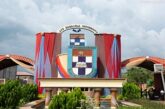
*Government must be more proactive on issue of public examinations
The Federal Government’s reversal of an earlier decision allowing JSS3 and SSS3 students to write examinations supervised by the West African Examinations Council (WAEC) is mistaken and should be reconsidered.
In announcing the new position, the Minister of Education, Malam Adamu Adamu explained that the step was taken in response to the growing cases of COVID-19 in the country.
Arguing that it was preferrable for students to lose one year than be affected by the virus, the minister urged WAEC to suspend the examinations and urged state governments not to reopen schools in their states.
Reacting to the decision, the Committee on Basic Education and Services of the House of Representatives disagreed with the minister.
In a statement signed by its chairman, Professor Julius Ihonvbere, the committee claimed that government had not consulted with stakeholders before reversing itself, and said the measure would cause massive disruption to the education sector.
The committee stated that steps could be taken to minimise inconvenience and risk by ensuring that the numbers of WAEC invigilators were increased, by ensuring that social-distancing protocols were fully observed, by not allowing boarding houses to be opened, and by working with the relevant ministries to ensure that schools are properly fumigated and provided with sanitary equipment.
Educational activity is perhaps the one area where the tensions and paradoxes engendered by the COVID-19 pandemic are at their most acute.
The closure of educational institutions in March was one of the most poignant consequences of the emergence of the pandemic.
The question of when and how to reopen schools has been torn between two equally-strong arguments. On the one hand, there is the desire to prevent rises in infections among children by ensuring that they do not congregate in school.
On the other, there is the realisation that education cannot be halted indefinitely because of fears of infection.
However, the Federal Government’s decision to go back on its previous stand seems to display an indecisiveness that is unworthy of it.
Such inconsistency shows that the first decision was poorly-conceived, and thereby casts similar suspicions on the veracity of its latest stand.
The accusation that it failed to consult properly seems to be true, given the dismay its policy reversal has caused among the major stakeholders.
Nor does it appear that the implications of the new decision have been fully considered. If JSS3 and SSS3 students do not take the 2020 WAEC examinations, the consequences will have far-reaching reverberations.
Apart from the loss of a year, it will have deleterious knock-on effects for the Unified Tertiary Matriculation Examination (UTME) and admission into tertiary institutions.
Now that the government’s position has apparently compelled WAEC to postpone the examination, it is vital that Nigeria use the time to properly prepare itself so that its students can take the examinations on the new date.
Ghana has already shown the way: the comprehensive fumigation of schools and universities; the establishment of clear social distancing protocols that all students, teachers and non-academic staff must comply with; the utilisation of proper physical-distancing regulations in classrooms and boarding houses, the barring of school premises to outsiders.
It is crucial that Nigeria begins to take steps to return to normal life while observing pandemic-prevention protocols. After four months of necessary stagnation, it is time for the nation to make an adjusted return to the so-called “new normal.”
This will require courage, careful thought and determination on the part of government and the citizenry.
-Thenation




